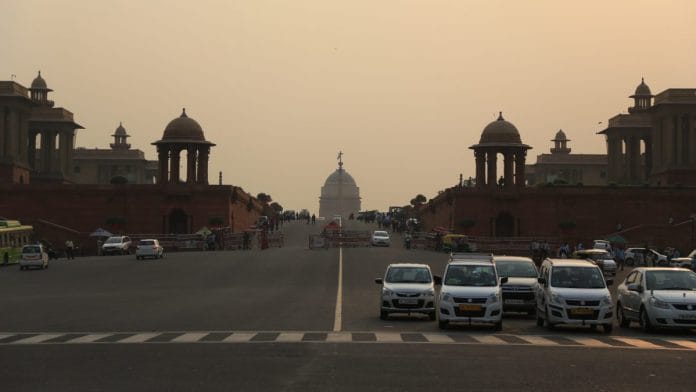New Delhi: The Supreme Court judgement ordering the progressive reduction of IPS officers in the Central Armed Police Forces (CAPFs) could adversely impact national security, and goes against the spirit of federalism as per which the All India Service Rules (AIS) were enacted, the Union government has said in its review petition.
Moreover, the matter pertains to policy-making, which does not fall under the purview of the judiciary, it adds. “It is submitted that the question whether there should be deputation of IPS officers and to what extent are matters purely of policy considerations which fall under the Legislative and Executive domain.”
The petition further states: “While exercising judicial review, this Hon’ble Court has held that the courts will not second-guess the wisdom since the courts are not equipped to weigh factors necessary for policy making. The Executive is best equipped to determine the balance of cadre officers and deputationists based on functional necessity, need for introduction of lateral talents etc.”
While the Supreme Court order says that the presence of IPS officers through deputation affects the promotional aspects of CAPF officers, the Centre argues that the same is not true since the former have a “miniscule numerical strength” in the CAPFs.
“It has been completely overlooked that the number of IPS officers on deputation in the CAPFs up to IG (SAG) level is only about 1.4 percent of the total number of Group A (General Duty /Executive Cadre) officers of the Forces,” the petition says. “Given this minuscule numerical strength, it cannot be said that their presence affects the promotional prospects of the cadre officers.”
The Centre further states that on the contrary, “any reduction beyond a level will adversely affect the functioning of these forces and will go against the very purpose of the creation of AIS by Constitution makers”. It will also “have implications on the national security architecture of our country”.
After a long court battle between the officers of the IPS and CAPFs over whether IPS officers should continue to be sent on deputation to CAPFs at senior positions, the Supreme Court (SC) decisively ruled in May this year.
The CAPFs, including the Central Reserve Police Force (CRPF), Central Industrial Security Force (CISF), Border Security Force (BSF), Sashastra Seema Bal (SSB), Assam Rifles (AR), Indo-Tibetan Border Police (ITBP), and National Security Guard (NSG), will be treated as “organised services” for all purposes, the SC said.
In February 2019, the apex court had granted CAPFs the status of Organised Group A Services (OGAS) and granted CAPF officers the Non-Functional Financial Upgradation (NFFU).
Services such as the IAS, IPS, IRS, etc., are all OGAS, under which officers are granted pay and other benefits according to their privileged status, including NFFU. It means that officers get a salary raise and related perks if they reach a certain level of seniority, even if they do not get a promotion due to lack of vacancies.
However, in its review petition, the government has argued that the Supreme Court judgement was confined to the granting of NFFU and Non-Functional Selection Grade (NFSG), a pay scale for Group A services.
“By no stretch of imagination can it be said that OGAS status was sought to be granted for all purposes,” the government has said. “Given the unique structural, functional and organisational and administrative attributes, CAPF officers have always been treated differently.”
Moreover, unlike other OGAS, 98 percent of the CAPF cadre comprises troops, and officers constitute just 2 percent of the forces. Therefore, they cannot be treated as OGAS for all purposes, the Centre says.
The judgment “incorrectly records” that the central government has admitted the services of cadre officers of CAPFs as OGAS, the petition states.
“Any departure from the present structure may have profound and unintended grave implications on the entire National Security Structure,” it has been argued.
(Edited by Gitanjali Das)
Also Read: Record 16 IPS officers to be posted to conflict-ridden Manipur as Centre cites ‘backlog’






